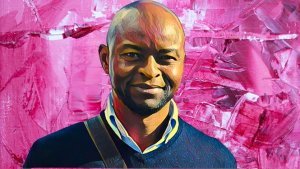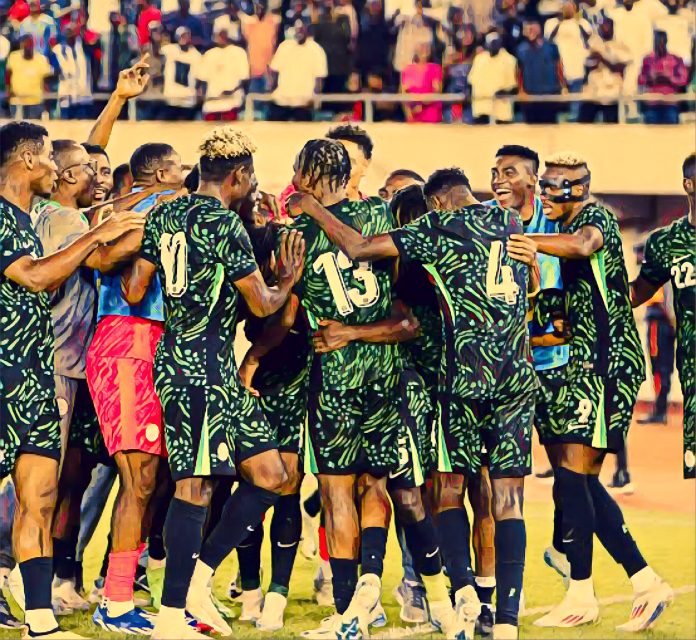KEY POINTS
- Nigeria’s football legacy includes AFCON wins and Olympic gold.
- Youth programs and academies foster rising stars.
- Emerging talents excel globally, boosting Nigeria’s future.
Football is more than just a sport in Nigeria—it’s a unifying force, a source of national pride, and a cultural phenomenon.
From the bustling streets of Lagos to the rural heartlands, the game brings Nigerians together, transcending ethnic, religious, and social divides.
With a rich history of iconic players and significant achievements, Nigeria has cemented its place as one of Africa’s footballing powerhouses.
At the same time, the country is nurturing a new generation of talented players, ensuring its footballing legacy remains strong.
Let’s explore Nigeria’s football history, current stars, and the future of its vibrant football ecosystem.
Nigeria’s football legacy
1. The Golden generation
The 1990s marked a golden era for Nigerian football, with the national team earning global recognition. This generation featured legendary players like Jay-Jay Okocha, known for his mesmerizing dribbles and flair, Nwankwo Kanu, a two-time African Footballer of the Year, and Finidi George, who shone on the international stage.

These players led Nigeria to remarkable achievements, including their first FIFA World Cup appearance in 1994 and the historic gold medal at the 1996 Atlanta Olympics. This period not only showcased Nigeria’s footballing prowess but also inspired millions of young Nigerians to dream big.
2. African cup of nations successes
Nigeria’s triumphs in the African Cup of Nations (AFCON) are a testament to its footballing strength. The national team clinched its first title in 1980, defeating Algeria on home soil.
A second title followed in 1994, during the team’s golden generation and a third in 2013 under coach Stephen Keshi’s leadership.
These victories have solidified Nigeria’s status as one of Africa’s most successful footballing nations, inspiring future generations of players.
3. Performances in international competitions
Nigeria’s performance on the global stage has been equally impressive. The Super Eagles have qualified for the FIFA World Cup six times, reaching the Round of 16 on three occasions. The 1996 Olympic gold medal remains one of Nigeria’s proudest moments, as they became the first African team to win the football tournament, defeating football giants like Brazil and Argentina.
Future talents
1. Youth development programs
The Nigeria Football Federation (NFF) has recognized the importance of nurturing young talent through structured programs. Initiatives such as the NFF Youth League and grassroots tournaments aim to identify and develop future stars. These programs not only focus on technical skills but also emphasize character building and discipline, ensuring young players are well-rounded individuals.
2. Academies and training facilities
Football academies like the Pepsi Football Academy and clubs like Kwara Football Academy have become breeding grounds for Nigerian talent. Facilities like the Abuja National Stadium and Lagos National Stadium play a pivotal role in training aspiring footballers. Despite challenges, these academies and facilities continue to provide a platform for young players to develop their skills and gain exposure to professional opportunities.
3. Emerging talents

The current crop of Nigerian footballers represents a bright future. Players like Victor Osimhen, Samuel Chukwueze, and Wilfred Ndidi have already made their mark on the global stage, excelling in Europe’s top leagues. Their success underscores the potential of Nigerian football and highlights the effectiveness of grassroots development programs in producing world-class talent.
Scenarios
The success of NFF youth development programs
Players like Kelechi Iheanacho and Alex Iwobi owe their rise to structured youth development initiatives. Iheanacho’s journey from the streets of Owerri to Leicester City’s star striker exemplifies the potential of these programs to transform raw talent into professional athletes.
The role of training facilities
The Abuja National Stadium, with its state-of-the-art facilities, serves as a hub for both national team preparations and youth training camps. However, inconsistent maintenance and funding issues highlight the need for sustained investment to maximize these resources.
Challenges for Nigerian footballers
Despite their potential, many aspiring footballers face hurdles such as poor-quality pitches, outdated equipment, and limited access to professional coaching. Addressing these challenges is essential to ensure Nigeria’s footballing future remains bright.
Opportunities
- Investment in infrastructure: Developing world-class stadiums and training facilities can attract international tournaments and enhance player development.
- Youth programs: Expanding grassroots programs can uncover hidden talent in underserved regions.
- International collaborations: Partnerships with European clubs and organizations can provide Nigerian players with exposure to advanced training techniques.
- Digitalization: Embracing data analytics and virtual reality for player development can revolutionize training methods and scouting.
Challenges
- Funding: Limited budgets hinder the growth of infrastructure and programs. Sustainable financing models are critical to overcoming this obstacle.
- Corruption: Mismanagement within football administration undermines progress, necessitating transparency and accountability reforms.
- Brain drain: Talented players often leave Nigeria for greener pastures abroad, depriving local leagues of quality talent.
- Infrastructure Gaps: Many regions lack basic football facilities, limiting access for young players.
Nigeria’s football legacy is a powerful story of passion, resilience, and achievement. While the country has made significant strides, challenges such as funding, corruption, and infrastructure gaps remain obstacles to unlocking its full potential.
However, with continued investment in youth development, strategic partnerships, and a focus on accountability, Nigeria’s football future looks promising.
As emerging stars shine on the global stage, they inspire the next generation, ensuring that Nigeria’s football legacy endures for years to come.



